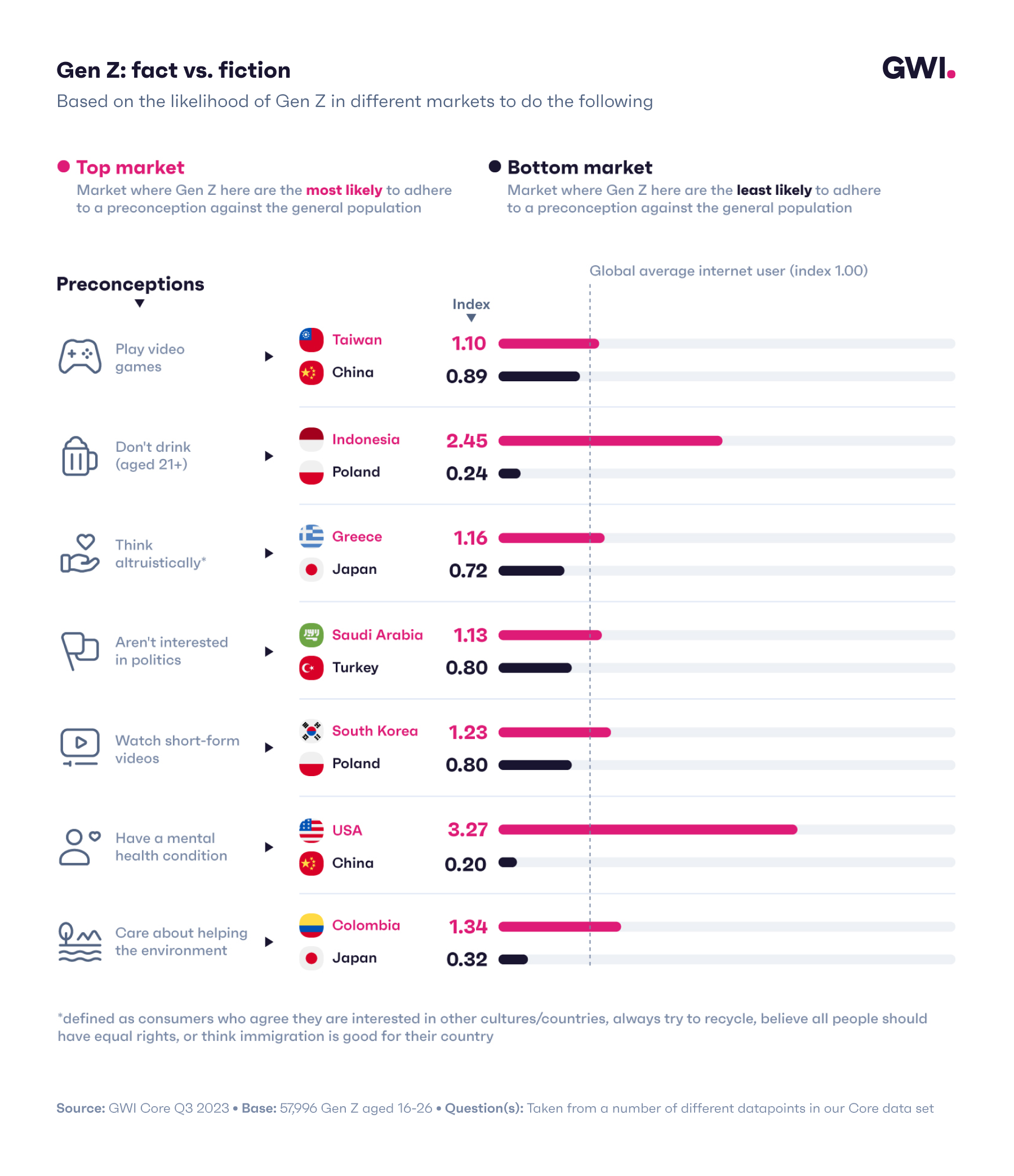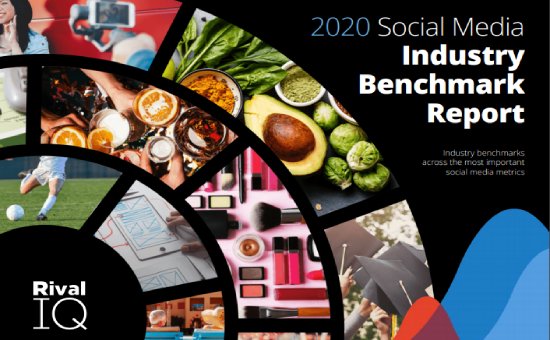The New Age of Gen Z | GWI
|
It’s easy to think that those around your age share similar life experiences. While you might have started school at the same time, these shared milestones overlook the unique experiences that shaped who we were at those moments.
Relying solely on demographic data can lead to broad assumptions about consumers’ attitudes, self-perceptions, and motivations. By adopting a 360-degree view of the consumer, we can shift from defining individuals by surface-level data to understanding their unique perspectives, something only in-depth research can provide.
Traditional data collection methods cannot accurately capture a generation, so let’s delve into the real Gen Z.
A Little Disclaimer Before We Begin
This report has its limitations. While we urge marketers to look beyond demographics, analyzing high-level Gen Z trends inherently involves some generalizations—precisely what we advise against.
We acknowledge the diversity within this group and aim to highlight tendencies that offer helpful context rather than making definitive claims about all Gen Z individuals. Readers should use our insights for broader strategic guidance and avoid assuming all individuals align with these general trends.
Key Insights
Mental health matters more than you might think
Gen Z is the generation most likely to report having a mental health condition, yet they are the least comfortable discussing it. Brands must consider mental health in their campaigns as it becomes an increasingly critical issue.
Short-form content is (mostly) king
Gen Z adopted TikTok faster than any other generation, showing a clear preference for short-form video. However, in many markets, long-form videos (over 10 minutes) are equally popular. Brands should focus on the format rather than just the length of their content.
Gen Z workers are quietly embracing AI
Gen Z is the most enthusiastic about AI, with many already incorporating it into their work. This presents an opportunity for brands to support AI adoption among future workers who are native to the technology.
Target interests, passions, and media preferences
Gen Z’s identity—whether online or in person—is defined by their hobbies, interests, values, and beliefs, not their age. Brands should prioritize psychographic factors when profiling their audience, rather than focusing on age, language, or gender.
Gen Z finds information without a search bar
This generation looks beyond traditional search engines for information. They prefer image and voice search, as well as AI chatbots, which resonate particularly well with them. While chatbots won’t replace traditional search, they enhance the overall search experience.
01 Age doesn’t define a generation
Every generation carries its own set of stereotypes, such as baby boomers being workaholics or millennials being lazy. These myths often obscure the genuine nature of an audience, making it essential for brands to challenge these preconceptions to engage authentically with their consumers.
Drawing from extensive research, social media posts, and general internet chatter, we’ve created a shortlist of common associations with Gen Z and analyzed the data to separate fact from fiction.

Taking a global perspective allows us to examine which stereotypes hold true at first glance, such as the notion that Gen Z plays more video games. Indeed, outside of China and India, Gen Z is slightly more inclined to do so, but only by 9%. While this stereotype holds some truth, it doesn’t make Gen Z significantly more likely to play video games than other age groups.
Then there are perceptions that don’t hold up, such as the association of Gen Z with being “woke.” This term is nebulous, often implying that this generation is more altruistic than previous ones. To explore this, we examined data points like their interest in other countries, belief in equal rights, and views on immigration. Surprisingly, Gen Z is less likely to agree with these altruistic statements compared to other generations.
To understand these perceptions better, we need to compare Gen Z with the general population within their home countries. For instance, altruism is notably more prevalent among Gen Z in Greece, Croatia, and Portugal but is less common in Japan, Saudi Arabia, and Egypt.
There are many ways to analyze these trends, but the key takeaway is that while some stereotypes about Gen Z may contain elements of truth, the reality is rarely black and white. Our data helps brands navigate these nuances.
Dive deeper into the nuances of Gen Z and learn how to engage with this unique generation effectively. Discover comprehensive insights and strategies tailored to their preferences and behaviors. Ready to unlock the full report? Continue reading now.
The Table of Contents of “The New Age of Gen Z” Report :
- Key insights
- 01 Age doesn’t define a generation
- 02 Engaging through entertainment
- 03 Lifestyle temperature check
- 04 A Unique Life online
- Notes on Methodology
Pricing:
- Free
Methodology
All figures in this report are drawn from GWI’s online research among internet users aged 16-64, or 16+. Our figures are representative of the online populations of each market, not its total population. Note that in many markets in Latin America, the Middle-East and Africa, and the Asia-Pacific region, low internet penetration rates can mean online populations are more young, urban, affluent, and educated than the total population.
Each year, we interview over 970,000 internet users aged 16-64 in 53 markets via an online questionnaire for our Core data set. A proportion of respondents complete a shorter version of this survey via mobile, hence the sample sizes presented in the charts throughout this report may differ as some will include all respondents and others will include only respondents who completed our Core survey via PC/laptop/tablet.
When reading this report, please note that we focus on data from our ongoing global quarterly research, but also refer to our monthly Zeitgeist studies across 12 markets, and our GWI USA dataset, which surveys over 20,000 internet users in the US aged 16+ each quarter.
Throughout this report, we refer to indexes. Indexes are used to compare any given group against the average (1.00), which unless otherwise stated refers to the global average. For example, an index of “1.20” means that a given group is 20% above the global average, and an index of “0.80” means that an audience is 20% below the global average.





